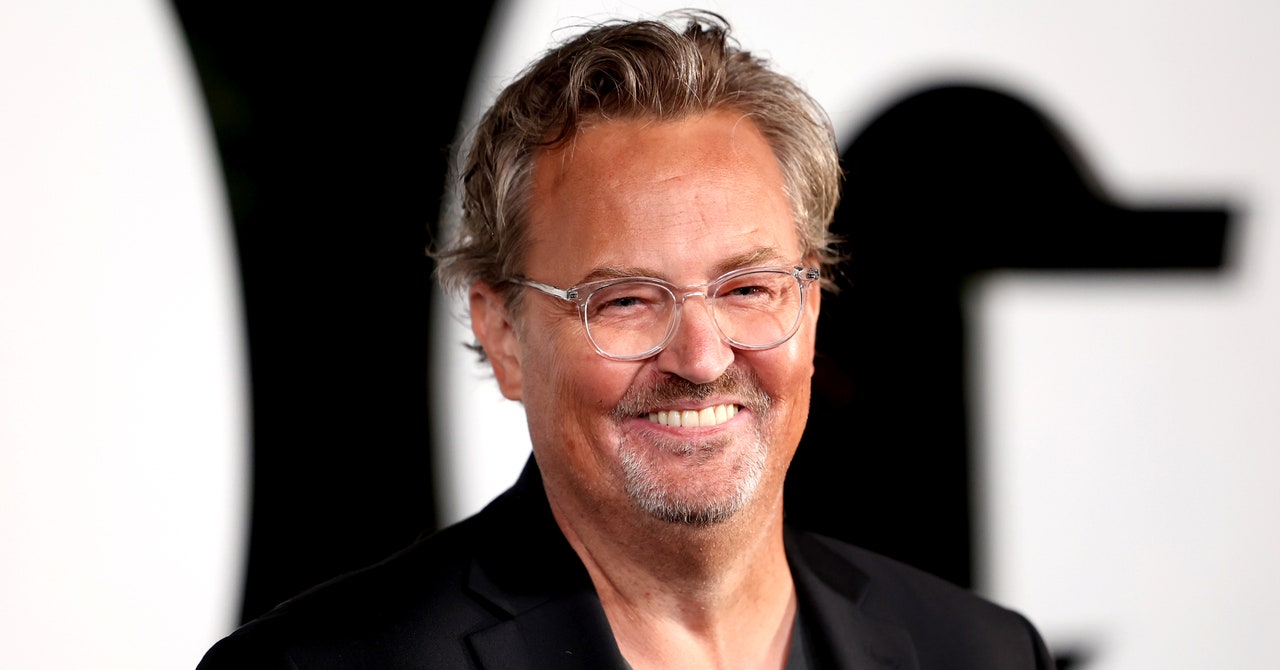Matthew Perry Deserved Better Than #DiedSuddenly

It didn’t take long for news of actor Matthew Perry’s death to go public. TMZ broke the story so early that paparazzi had already camped out to photograph the Friends star’s grieving parents as they arrived on the scene.
The vulturous routines of the celebrity death news complex are, at this point, predictable. Tabloids compete for 911 call recordings, statements from famous friends, autopsy reports, even glimpses of remains; the cause of death, if unclear, is fervently debated. It is a tough business, brazen and disrespectful, but one that looks wholly quaint next to a newer post-death ritual that emerged during the Covid-19 pandemic.
In the past few years, anti-vaccine activists have latched onto tragedies by insinuating or flat-out stating that unexpected deaths of all kinds were caused by adverse reactions to Covid vaccines, although evidence does not support their assertions. They often use the hashtag #DiedSuddenly to spread their widely debunked theories on X (formerly Twitter), but the phenomenon is not limited to social media. In November 2022, right-wing radio host Stew Peters released a film, Died Suddenly, that created a new avenue to push misinformation. Former Fox News host Tucker Carlson amplified the message when a guest on his show speculated that Covid-vaccine-induced myocarditis had caused NFL player Damar Hamlin’s cardiac arrest in January 2023. (Hamlin’s doctors later determined his collapse was caused by commotio cordis.)
The #DiedSuddenly movement often focuses on public figures, like soccer reporter Grant Wahl and songwriter and Elvis scion Lisa-Marie Presley. But it frequently targets regular people too. The movement will often antagonize families of the deceased, making their bleakest days even harder by spreading lies about how their loved ones died. One of the most harrowing, heartbreaking testimonies capturing the damage this movement can do comes from journalist Billy Ball, who lost his six-year-old son in an accident earlier this year. #DiedSuddenly believers taunted Ball about his child’s death, ignoring all medical evidence and human decency to harass a grieving father.
Now, Perry is #DiedSuddenly’s latest target. The movement works quickly. Perry’s cause of death is still unknown; he was found unresponsive in a hot tub. There is absolutely no evidence to suggest that Perry’s death was linked to his vaccination status. But within hours of the news breaking, Perry’s Wikipedia page had already been altered to insinuate that vaccination might be a factor. It read: “Perry died on October 28, 2023, after an apparent drowning. It is unclear whether the drowning was due to complications from the Covid-19 vaccine.” (The reference has since been removed.) Anti-vaxxers jumped on social media too, including alternative health blogger Erin Elizabeth, anti-Muslim activist Lauren Loomer, and right-wing social media personality Philip Buchanan (aka “Catturd2”), who all linked Perry’s death to vaccination.
There is something especially perverse about the #DiedSuddenly movement picking Perry as its next avatar. The 54-year-old actor had been open for decades about his medical challenges, especially his long-term substance use issues. In his 2022 memoir, Friends, Lovers, and the Big Terrible Thing, Perry wrote candidly and at length about how severely his drug and alcohol use had impacted his health, necessitating over a dozen stomach surgeries and a medically induced coma.
As he promoted his book, Perry talked about how he hoped his candor might help others. (In one interview, he stressed that he wanted that to be his legacy when he died.) In this way, Perry’s last years were spent trying to share the truth about his personal health challenges in order to prevent others from enduring the same pain. So it is particularly nasty that a movement dedicated to obscuring the truth in favor of fearmongering and innuendo is now leeching onto his death.
It is also not an anomaly. #DiedSuddenly is best understood as the latest symptom of an ongoing and worsening cultural sickness. As with Sandy Hook conspiracy theories and other forms of Covid denialism, the #DiedSuddenly movement feeds on distrust in institutions and expertise; its adherents see themselves not as bullies but as truth-tellers attempting to puncture myths.
Perry won’t be the last person whose memory is maligned by this movement. X, in particular, is viewed as a safe haven for the #DiedSuddenly community. Without significant changes to the platform’s moderation process, it will remain so. (A search for “Matthew Perry died suddenly” pulls up dozens of verified accounts plying the conspiracy.) Even if Elon Musk decided his new life goal was eradicating medical misinformation, this problem extends beyond any one platform. Viewing the situation as futile is a disservice to Perry’s memory too. He wanted, above all, to be truthful with others about his story. Countering lies about his health, then, is a way to honor his life’s work.
Updated 10-31-23, 8:38 am EST: This story was updated to remove a reference to an erroneous tweet.


